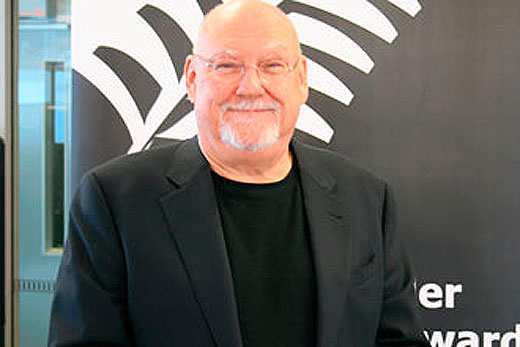Tauranga is further mobilising its ageing population to keep engaged in business, community and innovative thinking with a free event tomorrow.
More than 75 people are expected to attend the Elder Innovation Event 2014 – organised by Priority One, Tauranga City Council and the Elders' Forum – to further support Tauranga's age friendly city strategy at Club Mount Maunganui on Thursday.
Auckland-based scientist, inventor and social entrepreneur Sir Ray Avery will be speaking at the Elder Innovation Event 2014 on March 27.
Auckland-based scientist, inventor and social entrepreneur Sir Ray Avery is the keynote speaker and will be providing insights into his entrepreneurial journey.
Priority One project manager Michelle Parker says the purpose of the event is to encourage people who are retired, or considering retirement, to continue to be active in business, community and innovative thinking.
Michelle says New Zealand, and most developed countries in the world, will be facing a serious problem in terms of skill and labour shortages as the 'baby boomer' generation [those born between 1946 and 1964] gets closer to retirement.
'With the retirement at age 65, this started happening from 2011 and will continue to 2029. There are not enough people being born to replace those retiring, so employers are going to have to think about how they will encourage older people to stay in the workplace for longer.”
She says this may call for more flexible working conditions and considering other issues that would drive older workers to stay in the workforce.
'There is also a significant amount of knowledge and expertise that will be lost when these people retire. It is important that businesses are able to harness this in some way before it is lost.”
If the older demographic is not encouraged to continue to engage in business, community and innovative thinking, Michelle says workforce growth will not match population growth, which will lead to skill shortages particularly in the healthcare and aged care sectors.
She says the gap between skills and knowledge will threaten the economy and there will be an increasing demand for medical and healthcare services.
This will be followed by a greater demand for 1-2 bedroom housing options and politics will be driven by a mature democracy, says Michelle. Planning for an older demographic will benefit the whole community, says Michelle, who believes this is a serious change in the aging demographic that needs to be well considered and planned for. 'It will change the very essence of what we do and how we do it, from an individual perspective, through to the impact on business and also the wider community.”
Tauranga is the first city in New Zealand to have an Age Friendly City Strategy.
SmartGrowth and the Bay of Plenty District Health Board signed a Memorandum of Understanding in 2007 to establish the Population Ageing Technical Advisory Group, which considers matters related to the impact of population ageing in Tauranga and the Western Bay of Plenty.
At the forum, there will also be case studies showcasing retired, or retiring, business people who are continuing to demonstrate their strengths in business and the community.
The Elder Innovation Event 2014 is at Club Mount Maunganui from 9.30am to 12pm on March 27. The free event is open to public.
NZ wide statistics:
- Baby boomers begin to reach 65 in 2011
- 42 per cent of the labour force is now over 42 years of age
- There will be 60 per cent more elders than children by 2051.
- Life expectancy is increasing by two years each decade.
- There will be a 46 per cent increase in one person households between 2001-26.
Some statistics (WBOP sub-region):
- By 2031 the population will have increased from 149,900 to 211,300. Most of the gain will be through migration.
- The greatest change will be in the 65+ demographic, which will double (an increase of 27,600 people). This is more than twice the NZ average growth rate for this demographic.
- The most significant increase will be in the proportion over 80. Why?
- The sub-region is a desirable retirement destination.
- We start from an older base (current).
- We lose many of the 18-30 age group (tertiary study, jobs).
- One of the biggest issues facing the kiwifruit industry is that the average age of growers is currently 57.
The average age for nurses is 52 and increasing each year.



1 comment
Privileged
Posted on 27-03-2014 13:45 | By nerak
I felt privileged to attend this function, with an outstanding guest speaker in Sir Ray Avery - to say he is inspirational just doesn't cut it, he is far, far more than that. Also thanks to the other speakers, all of whom had thought provoking comments. From the floor came a comment that NZ is now so wrapped up in cotton wool we as a nation are stifled, from kids climbing trees (you might break an arm) to the overpowering, all crippling OSH. Is it time to carefully turn the clock back, find a sensible balance, so kids can be kids, and workers can work. And how many retirees are there out there who can put their thinking caps on, hands up, and step up?
Leave a Comment
You must be logged in to make a comment.